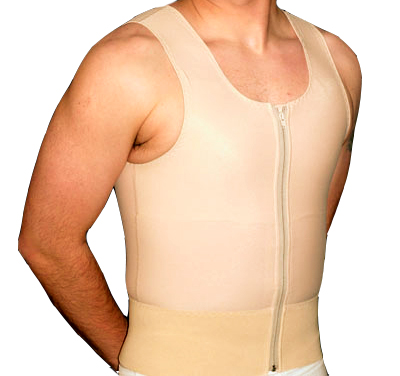Returning to Work
We understand that getting back to your daily routine is important, and you might be wondering when it’s safe to return to work. Here’s a simple guide:

Office or Desk Jobs: You can usually return to work the day after surgery. Before heading back to work, we recommend a quick follow-up visit to the clinic. The follow-up only takes about 20 minutes, ensuring your recovery is on track.

Physically Demanding Jobs: If your job involves physical labor, such as heavy lifting, operating machinery, or construction work, it's best to avoid strenuous activities for the first two weeks. This will help prevent any strain on the operated area and ensure a smooth recovery.

Exercise and Workouts: We encourage light physical activities to aid recovery. You can start leg workouts, light walking, or gentle jogging as early as a week after surgery. However, wait at least 4 weeks before resuming weightlifting or chest exercises. During the first month, avoid using your arms and chest too much to prevent complications.
Important Post-Op Care Tips

- Healthy Eating: Start with soft, gentle foods and avoid spicy or strong-tasting dishes. You can enjoy most foods, except for alcoholic beverages and overly salty meals.
- Avoid Smoking: Smoking can significantly delay the healing process and increase the risk of infection. This includes traditional cigarettes, e-cigarettes, hookah, and even exposure to secondhand smoke. Avoid smoking for at least 2 weeks post-surgery.
- Handling Fluid Leakage: It’s normal to experience a bit of fluid leakage during the first day. If this happens, replace the dressing with a sterile gauze. Make sure not to open the dressing point as the wound needs to stay protected from contamination.

- Compression Garment: Wearing your compression vest is crucial for your recovery. It prevents fluid accumulation, helps reduce swelling, and supports skin retraction. Wear it for 4 weeks—24 hours a day for the first 2 weeks, then 12 hours a day for the next 2 weeks.
- Showering and Bathing: You can take a shower 1 to 2 days after surgery with a waterproof band on the wound. For hot baths, saunas, or swimming, give your body 4 weeks to fully recover.
- Sponge Pad Care: If you were provided with a sponge pad, apply it around the areola for only 7 days. This helps with healing and provides gentle support.
What to Expect During Recovery
Your chest might appear asymmetrical, lumpy, swollen, or slightly dimpled. Don’t worry—this is a temporary phase that can last for 4 to 6 months. Light daily activities like walking can speed up recovery, but avoid lifting anything heavier than 40 pounds (about 18 kg) during the first week. It’s okay to roll luggage, but avoid lifting it.
- Massage and Stretching: After 2 weeks, start light massage and gentle stretching. The “Biobond (lumps)” under the skin may take 4 to 6 months to gradually decrease.
- Scarring: It’s normal to develop ‘Hypertrophic scars’ after chest surgery. Proper post-op care is essential to minimize their appearance.
When to Contact Us
our safety and comfort are our top priorities. Please reach out to us immediately if you experience any of the following symptoms within 3 to 4 days after surgery:
- Excessive pain
- High fever
- Yellowish discharge from the wound
- Persistent itching
We are here to support you every step of the way. If you have any questions or concerns, please do not hesitate to contact us. Your smooth and speedy recovery is our goal!
Uso di strisce steriche dopo chirurgia ginecomastia
Scopri come gli Steri-Strips aiutano a ridurre le cicatrici e favoriscono una guarigione ottimale dopo l'intervento chirurgico di ginecomastia. Chiedete consigli e consigli agli esperti della Clinica Evita.
[FAQ] Obesità infantile e ginecomastia
La ginecomastia adolescenziale colpisce il 20-30% dei ragazzi adolescenti, con la maggior parte dei casi che si risolve spontaneamente entro un anno. Tuttavia, circa il 10% può sviluppare un ingrossamento persistente del seno a causa di fattori come obesità, stress cronico e alcuni farmaci. L'obesità infantile, se non affrontata, spesso continua nell'età adulta e aumenta la probabilità di ginecomastia. Inoltre, la ricerca suggerisce che fino al 30% dei casi potrebbe essere legato a una predisposizione genetica, sottolineando l'importanza di interventi precoci sullo stile di vita e la consapevolezza della storia familiare.
L’assicurazione sanitaria coreana si applica alla ginecomastia.
Molti stranieri residenti in Corea sono iscritti all'assicurazione sanitaria coreana. In caso di ginecomastia di grado 2 o superiore, viene applicata l'assicurazione sanitaria coreana.
[FAQ] Gli integratori proteici o l’alcol causano ginecomastia?
Gli integratori proteici possono anche essere una delle diverse cause di ginecomastia.
[FAQ] Circa il grado di ginecomastia
Questi gradi di ginecomastia variano leggermente da persona a persona. Il metodo chirurgico deve essere selezionato in base all'età del paziente, alla massa muscolare, al periodo di recupero, allo stile di vita e alle esigenze del paziente. A questo proposito, ti consulterai con uno specialista e prenderai una decisione.
[FAQ] Come autodiagnosticare la ginecomastia?
Dr. Jeon spiega come auto-diagnosticare ginecomastia.
